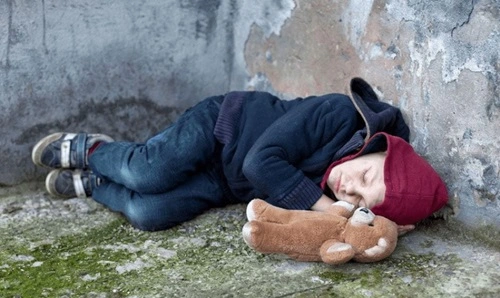No, it is not illegal to be homeless with a child in the United States. However, homelessness can trigger involvement from child protective services (CPS) or other government agencies, depending on the circumstances. The primary concern for authorities is the safety, welfare, and basic needs of the child. While homelessness alone is not a crime, it can lead to scrutiny, intervention, or legal consequences if it is determined that a child is in an unsafe or unhealthy environment.
Understanding Homelessness and the Law
1. Homelessness in the U.S.
- The U.S. Department of Housing and Urban Development (HUD) defines homelessness as lacking a fixed, regular, and adequate nighttime residence. This includes people living in shelters, vehicles, or other unsuitable conditions.
- Families with children account for a significant portion of the homeless population, often due to financial hardships, lack of affordable housing, or domestic violence.
2. Parental Rights and Homelessness
- The law does not criminalize homelessness or equate it with neglect or abuse. Parents have a constitutional right to raise their children, regardless of housing status.
- However, authorities may intervene if homelessness leads to conditions that jeopardize the child’s well-being, such as inadequate nutrition, exposure to violence, or lack of education.
Legal Implications of Homelessness With a Child
1. Child Protective Services (CPS) Involvement
- CPS may investigate reports of homelessness involving children. Their role is to ensure the child’s safety and access to basic needs.
- If CPS determines the living conditions are unsafe, they may offer services, such as temporary housing, or in extreme cases, remove the child from the parent’s care.
2. State and Local Laws
- Some jurisdictions have laws or ordinances that indirectly affect homeless families, such as anti-loitering or anti-camping laws. These laws can result in fines or arrests for homeless parents, compounding their challenges.
3. Education and Welfare Requirements
- Under the McKinney-Vento Homeless Assistance Act, homeless children have the right to a free public education and support services. Parents who fail to enroll their children in school may face legal repercussions, regardless of their housing situation.
Support Systems for Homeless Families
1. Shelters and Temporary Housing
- Many cities and states offer shelters or transitional housing programs specifically for families with children. These programs aim to provide a safe environment while parents work toward stability.
2. Government Assistance
- Federal programs like Temporary Assistance for Needy Families (TANF) and Supplemental Nutrition Assistance Program (SNAP) offer financial aid and food assistance to struggling families.
- Housing vouchers through HUD’s Section 8 program can help low-income families secure stable housing.
3. Nonprofit and Community Resources
- Organizations like Family Promise and local food banks provide critical resources, including job training, counseling, and childcare, to help homeless families regain stability.
Challenges Faced by Homeless Families
1. Stigma and Discrimination: Homeless parents often face judgment and discrimination, which can make it harder to access services or secure stable housing.
2. Legal Barriers: Homelessness may complicate custody battles, as courts prioritize stable living conditions when deciding custody arrangements.
3. Mental and Physical Health Issues: Homeless families often struggle with access to healthcare, increasing the risk of physical and mental health challenges for both parents and children.
Related FAQs
Q1. Is homelessness considered child neglect?
Ans: No, homelessness alone is not considered neglect. However, if it results in unsafe or unhealthy living conditions, authorities may intervene.
Q2. Can CPS take my child if I’m homeless?
Ans: CPS may get involved if they determine that the child’s needs are not being met. They may offer assistance before considering removal.
Q3. What legal rights do homeless families have?
Ans: Homeless families have rights under the McKinney-Vento Act, including access to education, healthcare, and housing services.
Q4. Are there shelters for homeless families?
Ans: Yes, many cities and states provide shelters or transitional housing programs specifically for families with children.
Q5. What should I do if I’m homeless with a child?
Ans: Seek help from local shelters, nonprofits, or government programs. They can provide resources to secure housing and meet your child’s needs.
Conclusion
Being homeless with a child is not illegal in the United States, but it can lead to challenges with authorities and social services if a child’s safety or basic needs are compromised. Support systems, including shelters, government programs, and nonprofit organizations, are available to help families in crisis. Understanding your rights and accessing these resources can make a significant difference in navigating this difficult situation.

